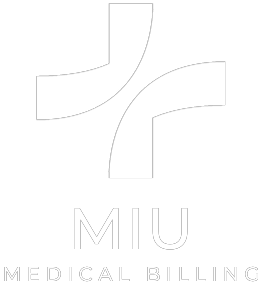Hospitals can be overwhelming with numerous terms, charges, and formats that patients do not know about—being informed about medical bill format and how conditions, including insurance, accidents, and even workers’ compensation, affect payment places one in an informed position to handle medical expenses. This guide is intended to assist you in understanding medical billing, different types of medical bills, and the most common problems you may encounter periodically.
1. What is a Medical Bill Format?

A medical bill format is a system that adopts an organized pattern of presenting charges by health care givers to its users. Getting information on this format makes it easy to check some changes to ensure no overcharging. Key components include:
- Patient Details: Name, date of birth, and account number must be filled out by the user and generated automatically.
- Service Date(s): They did not imagine when medical services were provided.
- Description of Services: The character and form of the procedures, treatment, or tests.
- Charges and Payment History: Account for every amount earned, expended, and adjusted.
- Insurance Information: Some are about the coverage details, and others about the amount paid by insurance.
- Balance Due: The patient’s obligation after deductions have been made.
2. Different Types of Medical Bills
1. Standard Medical Bill:
Usually, for check-ups with a primary care physician or an overnight hospital admission.
2. Emergency Medical Bill:
This arises from an urgent care or emergency room visit, often with higher rates.
3. Outpatient Medical Bill:
Refers to procedures such as diagnostic exams or operations carried out on an outpatient basis.
4. Inpatient Medical Bill:
Embraces costs related to hospitalizations, nurse attendants, and room charges.
5. Specialty Medical Bill:
For procedures such as physical therapy, chemotherapy, or specific required surgeries or tests.
3. What is the Minimum Monthly Payment on Medical Bills?
Minimum payments will likely relate to the overall bill, insurance, and other finance elements. It is for this reason that providers usually present payment plans through which the cost can be spread out to reduce the burden, for example:
Hospitals don’t need to repay fully but may give minimum amounts depending on your income status
Never pay a bill directly to the doctor or provider; always work with the billing office to change terms or seek assistance programs.
4. What If My Medical Bills Are More Than My Settlement?
Situations happen; sometimes, the claims pay less to meet all your medical expenses fully. Health insurance or personal funds can be used to bridge the gap between what is offered by the different insurance companies. In such cases:
- Review the terms of your settlement carefully.
- Use health insurance or personal savings to fill the gap.
- Negotiate directly with providers or hire an attorney to reduce the bills.
5. Health Insurance and Medical Bills in a Car Accident
In most cases, treatment costs incurred in car accidents involve interaction between health and automobile insurance. Key considerations include:
- Health Insurance Coverage: Pay for initial treatment if automobile insurance is still used.
- Personal Injury Protection (PIP): Paid based on the policy depending on the expenses incurred on medical bills; in such cases:
- Review the terms of your settlement carefully.
- Use health insurance or personal savings to fill the gap.
- Negotiate directly with providers or hire an attorney to reduce the bills.
6. What Happens If Medical Bills Exceed Policy Limits?
When medical costs surpass insurance policy limits:
- Secondary Insurance: Extra coverage is also offered under some policies.
- Out-of-Pocket Payments: The balance could, perhaps, be in patients’ hands.
- Negotiation: Negotiate with providers to lower charges or discuss, engaging in negotiations to arrive at a payment plan.
7. How Long Should I Keep Medical Bills?
Keep medical bills for at least seven years for tax purposes, primarily if they are related to:
- Insurance Claims: Compile all processed claims to make sure none of the claims were mishandled.
- Audits or Disputes: Refutes or supporting payments or services as the case may be.
They must be organized either in digital format or in files with labels so that they can be easily found. Some bills are outside policy coverage or paid higher than the policy limits. Dependents are concerned; second, insurance or medical costs are not questioned. In such cases: - Review the terms of your settlement carefully.
- Use health insurance or personal savings to fill the gap.
- Negotiate directly with providers or hire an attorney to reduce the bills.
8. Is the Primary Insurance Holder Responsible for Medical Bills?
Expenses related to the bills are not included in the coverage or are more than the policy’s coverage. Depending on the situation, the primary insurer’s dependents are engaged, and there is no place for secondary insurance when:
- Bills are not covered by the policy or exceed coverage limits.
- Dependents are involved, and secondary insurance doesn’t apply.
9. Medical Bills from Auto Accidents: What You Need to Know

Medical expenses for auto accidents can be somewhat complicated. Both health and auto insurance may be listed. All the claims should be prepared and submitted to ensure they do not create a conflict. Whenever there are disagreements between insurers, one should consult a lawyer for payments.
10. Workers’ Compensation Medical Bills
This type of medical bill usually covers medical expenses for job-related injuries. Some of the key steps are as follows:
- File the claims efficiently to ensure coverage.
- Contact an attorney or any state labor office for guidance if conflicts still exist.
11. Attorney Medical Bills: How Are They Handled?
Attorneys often negotiate medical bills, especially in personal injury cases, through:
- Medical Liens: Agreements to pay bills from settlement funds.
- Reducing charges by working directly with healthcare providers.
Conclusion
Overview of medical bill format: awareness of different billing issues enables one to be in a good position and ready and prepared. From insurance claims to dealing with gaps between the amount paid and the required amount, patients’ acute understanding of medical costs makes them capable of handling them. Stay organized, always in touch with the providers, and seek professional help when there is a misunderstanding.




